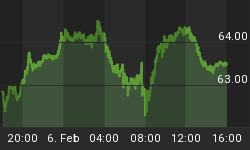It's always worthwhile to look at what the big-name analysts are saying about the year-ahead outlook in the stock market and economy. It has been our practice in recent years to review the annual Year-End Supplement and Forecast in the Mansfield Chart Service each January.
Mansfield usually asks about 20 well-known or highly respected analysts from banks, stock brokerage research departments, and financial newsletters to provide their outlook on stocks, interest rates, the dollar, and the economy for the year ahead. This year the panel included such financial luminaries as Ralph Acampora, Joe Granville, Gene Inger, Robert Prechter, Bernie Schaeffer, P.Q. Wall, Alfred Goldman, John Buckingham, Tom McManus, and a few others (mostly institutional research analysts).
The Mansfield blue ribbon panel is always an interesting cross-section of bulls and bears (mostly bulls) with varying levels of accuracy. Some of the panelists have better track records than others, and there's always at least 2-3 analysts whose forecasts you can pretty much discount right off the bat.
Here's how the panelists averaged out in their year-ahead predictions for 2005: 67% said the Dow would reach highs above 11,000, while 44% said the Dow would reach highs above 11,730. Thirty-three percent said the Dow would stay in a range between 9,500-11,000 and 33% said the Dow would decline to 9,500 or lower. The most bullish panelist (Gene Inger) forecast the Dow would be at 12,500 at year-end, while the most bearish analysts (Bob Prechter and Joe Granville) said it would be at 7,400 or lower. The median prediction for the Dow at year-end was 11,500.
Of the analysts surveyed by Mansfield, 17% felt the market was undervalued at current levels, while 50% felt it was fair valued and 28% felt it was overvalued.
The panel predicted that corporate profits in 2005 would be up between 5% and 10%, while only 6% felt profits would be flattish. The panel also predicted that the 10-year Treasury yield would increase towards 5% and 5 1/4% with only 11% believing it would stay around 4% to 4 ½%. The panel was 78% convinced the Fed would increase the Federal Funds rate to 3% - 4%.
On the economic front, 17% of the panel see the U.S. economy as flattish for 2005; 56% believe it will grow 2% - 3% (GDP), with 10% predicting it will grow 4% or more. On the inflation outlook for 2005, 28% see inflation reaching 3 ½% - 4%, while 50% do not believe inflation will get this high.
In my opinion the panel is overly-optimistic on their collective forecast for the corporate profit outlook. (Remember, these are mostly institutional analysts who have a built-in bullish bias from year-to-year). I also believe that their median year-end Dow forecast will probably be wrong, with the Dow being lower than 11,500 at year-end. While I do share the belief that the Dow will make a new recovery high this year before the dominant interim cycle peak (due in late March/early April), I also believe we could witness at least one severe hit later this year (as discussed in my forecast for 2005) as the 6-year cycle is due to peak this fall. This peak in the 6-year cycle has often produced the infamous "October Massacre".
The Dow's dominant short-term and interim moving averages are still in a bullish position and the upside momentum appears strong enough for yet another new high before the next cycle peak. Note the currently strong configuration of the quarterly Dow chart and moving averages below.

Speaking of this, the Bull & Bear Report published its annual survey of leading investment and economic pundits and released those findings in its January-February 2005 issue. The headline reads, "Experts lean more to large-cap stocks in '05." In brief summary here is what some of those experts had to say:
Don Phillips, managing director of Morningstar Inc., Chicago: "Be wary of interest rate risk in investments such as long-term government bonds..."
Hugh Johnson, chief investment officer at First Albany Corp., Albany, N.Y.: "The economy will grow at a rate of 3.5 percent, not as strong as 2004. Be wary of stock in banks, insurance companies, energy and pharmaceuticals..."
Richard Cripps, chief market strategist for Legg Mason Wood Walker, Baltimore: "Consumer spending and capital spending will slow. Avoid small-cap value stocks because that's where the money was put the past four years..."
James Barnash, president-elect of the Financial Planning Association and managing director of Lincoln Financial Advisors in Chicago: "Avoid real estate because it's been so hot and fixed-incoming investments because interest rates will rise..."
Steven DeSanctis, director of small-cap stock research for Prudential Securities in New York: "Earnings growth won't be nearly as strong in 2005...Emphasize large-cap growth stocks. Small-cap financial stocks look suspicious, since there will be a slowdown in mortgage refinancing. Be wary of consumer services stocks because spending will slow."
Richard Yamarone, chief economist for Argus Research Corp., New York: "The economy will grow at a 3 percent page in 2005, not strong enough for great job growth..."
Alfred Goldman, chief market strategies for A.G. Edwards & Sons, St. Louis: "The fourth year of the recovery is getting long in the tooth. GDP will rise 3.5 percent next year and inflation will rise 2.5 percent. The bull market is 26 months old and its knees are starting to creak..."















